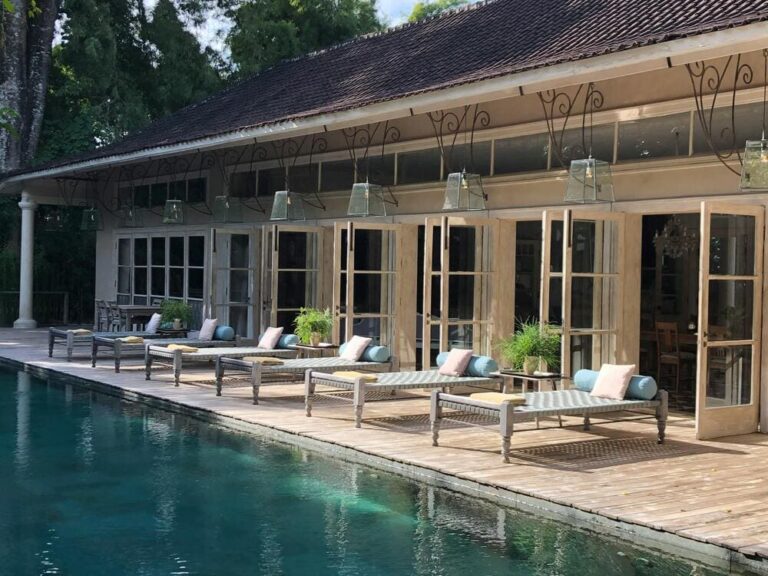Bali’s vibrant tourism industry makes it one of the most attractive locations for foreign investors looking to open villas or guesthouses. With stunning beaches, cultural richness, and a steady stream of international tourists, the island offers significant potential for profitable property ventures in luxury villas in Bali or eco-friendly guesthouses. Bali villa investment has become increasingly popular due to the influx of tourists seeking private accommodations. However, starting a villa or guesthouse in Bali involves navigating local regulations, understanding land leasing options, and designing properties that appeal to global travelers. This guide breaks down the essential steps to help you successfully launch your hospitality business in Bali.
1. Understanding Land Ownership and Leasing in Bali

Investing in property in Bali comes with certain restrictions, as Indonesian law limits land ownership for foreigners. The most common way to acquire land is through leasehold agreements, typically lasting 25 to 30 years with extension options. Another approach is the Right to Build (Hak Guna Bangunan), allowing foreigners to construct buildings without owning the land itself. Some investors also partner with Indonesian citizens to purchase land under local names, but this method carries legal risks and should be handled carefully.
Engaging with a trusted notary (“notaris”) and property lawyer is essential to ensure that lease agreements are transparent and legally binding. Proper legal oversight will safeguard your investment and prevent complications down the line. Many successful villa properties in Bali have thrived by securing long-term leaseholds that allow for flexibility and expansion.
2. Legal Permits and Licensing

Operating a villa or guesthouse in Bali requires obtaining the right permits and licenses. A Building Permit (IMB) ensures that your construction adheres to local building codes. An Operational License is mandatory to run any hospitality-related business, while an Environmental Permit is required if the property development could impact the surrounding area. Additionally, you will need a Tax Identification Number (NPWP) to manage business taxes in Indonesia.
The process of securing these permits can be complex, so working with local consultants familiar with Bali’s hospitality regulations can help expedite the process and avoid legal pitfalls.
3. Designing and Building Your Villa or Guesthouse

The design of your villa or guesthouse plays a significant role in attracting guests. Tourists are often drawn to properties that reflect Bali’s natural beauty and cultural charm. Incorporating traditional Balinese architecture, such as alang-alang roofs and open-air living spaces, enhances the appeal. Blending this with modern luxuries like infinity pools and eco-friendly features creates a unique experience that appeals to luxury travelers and eco-conscious tourists alike.
Sustainable villa designs in Bali, such as integrating solar panels, rainwater harvesting, and energy-efficient lighting, not only attract environmentally conscious travelers but also reduce long-term operational costs. Collaborating with local architects and contractors ensures the project aligns with both guest expectations and local regulations.
4. Marketing and Branding Your Villa

After completing construction, it’s time to focus on marketing and branding. Developing a villa website in Bali with booking capabilities is crucial for reaching international audiences. A professionally designed site enhances user experience and encourages direct bookings, bypassing third-party platforms. Social media platforms like Instagram and Facebook serve as powerful tools for showcasing your property, while SEO optimization ensures your villa ranks highly in search results for keywords like “luxury villa in Bali” and “Bali guesthouse rental.”
Collaborating with travel agencies and listing on platforms such as Airbnb and Booking.com further expands your reach. Highlighting unique features, such as ocean views, wellness retreats, or private chefs, can help differentiate your villa from competitors and attract more bookings.
5. Managing Operations and Staffing

Ensuring a seamless guest experience requires hiring skilled staff and maintaining high service standards. Recruiting local talent for housekeeping, guest services, and security fosters community engagement and ensures cultural alignment. Training programs are essential to uphold hospitality standards and create memorable experiences for guests.
Offering additional services such as guided tours, spa packages, and curated local activities enhances guest satisfaction. Implementing property management software can simplify booking management, guest communication, and financial tracking, streamlining daily operations.
Conclusion
Opening a villa or guesthouse in Bali can be a highly rewarding investment if approached with careful planning and local knowledge. From understanding land lease agreements to creating a standout brand, each step plays a crucial role in your success. By following this guide, you can navigate the complexities of Bali’s property market and build a thriving business in one of the world’s top travel destinations.
Interested in taking the next step? Contact Noethera for expert web design and branding services to bring your Bali villa to life online.







